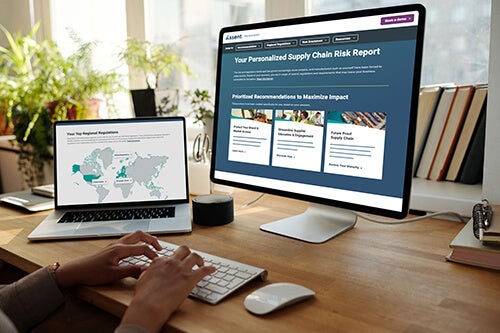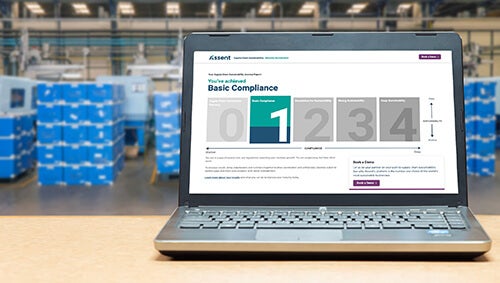

Of the companies surveyed, 77 percent feel it is likely that slavery exists somewhere in their supply chains, but more companies are taking steps to proactively assess and eliminate this risk.
The Modern Slavery Regulatory Landscape
In 2000, as part of the Convention against Transnational Organized Crime, the United Nations General Assembly adopted the Protocol to Prevent, Suppress and Punish Trafficking in Persons, Especially Women and Children. The protocol is the world’s first legally-binding instrument with a widely agreed-upon definition of “trafficking persons.”
In response, the international community began to create legislation that restricts, discourages or entirely prohibits modern slavery, including:
- The UK Modern Slavery Act.
- The U.S. Federal Acquisition Regulation (FAR).
- The Countering America’s Adversaries Through Sanctions Act (CAATSA).
- The U.S. Trade Facilitation and Trade Enforcement Act.
- The Australia Modern Slavery Act.
- The EU Non-Financial Reporting Directive.
- The French Duty of Care Law.
- The California Transparency in Supply Chains Act.
Modern Slavery Obligations & Penalties


Beyond ethical motivations, there are serious financial, legal, reputational and operational risks that must be properly identified and addressed. Even companies outside the scope of worldwide human trafficking and slavery regulations are expected, and often required, to demonstrate due diligence to key stakeholders. Companies that use low-skill, poor or migrant workers, as well as those that hire third-party recruiters or operate in high-risk countries, are particularly vulnerable to modern slavery risks.
The growing modern slavery regulatory landscape emphasizes transparent and ethical supply chain sourcing. To avoid disruption to business, companies must mitigate reputational risk and remain sustainable. Companies in scope of modern slavery regulations may be responsible for drafting and prominently displaying their due diligence plan, producing a risk assessment or carrying out certain due diligence actions, depending on company size and where they operate.
Non-compliant companies may be subject to large fines, loss of market access, customs delays and/or criminal charges.
Assent’s Human Trafficking & Slavery Module
Assent’s Human Trafficking & Slavery Module, part of the Product Compliance Suite, helps companies identify modern slavery risks and meet compliance goals. Highlights include:
- Centralized data collection in an easy-to-use and secure platform.
- Increased response rates with tailored, templated supplier communications.
- Leverage industry-recognized data collection standards such as the Slavery & Trafficking Risk Template (STRT).
- Automated risk-based dashboards and survey response reports that help companies identify risk.
- Real-time visibility into declaration responses.
- Multilingual support to assist with data collection.





